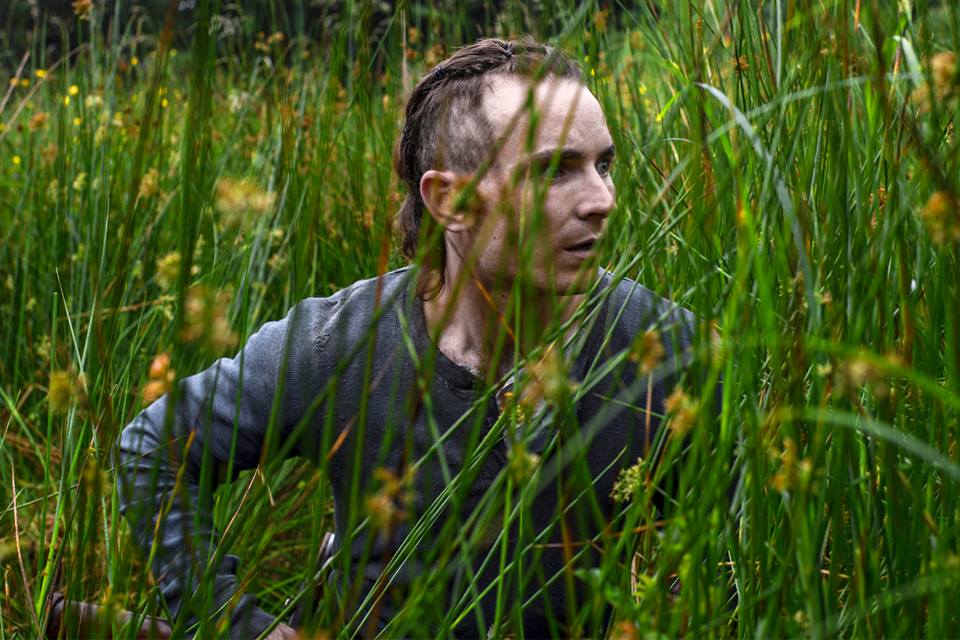We’re used to experiencing the post-apocalyptic world: explorations on both big and small screens have taken us through countless interpretations. But as I began to watch The Survivalist, playing at this year’s London Film Festival, I struggled to recall to mind one that combined a verdant environment and isolation.
What we have become used to are groups of survivors – familial, geographical, accidental and intentional – but we seldom travel with someone like this. We meet Martin McCann’s ‘Survivalist’ (never named) in the woods, dressed for the terrain and armed for the situation, silent and inexpressive amongst the abundant greenery. McCann is surrounded by nature and its sounds but there isn’t a voice for a disquieting age. The closest that we come to any sense of a larger humankind is in his burying of a dead interloper – someone we can only assume he killed for protection – and the theft and abuse of that man’s paltry evidence of past life. McCann’s separation from our world and behaviours is no better demonstrated than when he struggles to masturbate onto the seeds to plant in his smallholding; he uses a dog-eared snapshot of a woman (fully-clothed) to help force himself to the necessary arousal. He has no easy access left to erotic thoughts, and there is no pleasure in orgasm: his ejaculate is solely functional. That same picture is later burnt for warmth. It is touches like these that give the film so much credit: in many post-apocalyptic tales the credibility of the setting derives so much from major depravities committed by characters and groups. In The Survivalist, smaller amoral and immoral acts deliver so much more power and truth.
Playing a part like this demands something significant from the actor in terms of their physical performance, and McCann uses his body unflinchingly. His disregard – perhaps lack of awareness even – for his own nakedness is total and totally compelling. The exactness and utility of his movements is utterly credible – we can believe that this is someone who has spent years perfecting the efficiency of every moment, every resource, and for whom the only justification is to do what is essential. We watch him wash, eat, read, guard and tend without bombast or false steps – the film-making is every bit as governed by intent and effect as the survivalist himself.
Into this sad solitude – an outcome posited by the 70s docu-style opening credits as the result of running out of oil – come Kathryn and Milja – mother and daughter so they tell him. It’s in that moment that we realise just how brilliantly director Stephen Fingleton and his lead have done their jobs – because we instantly feel the same threat that the survivalist feels. Inevitably we also feel the fear of an aware audience, knowing that they must represent our hero’s doom. We just don’t know how.
Olwen Fouéré is tremendous as the ‘mother’: her face the perfect physical manifestation of her patient, tough, intelligent character. She is a single-minded drive for existence hardened by contact with others; McCann has been al for so long that his hardness is built on fragile foundations and you can see in his eyes that he desperately wants not to be alone, not to be alert. Mia Goth as Milja is a blankness that rings true – the one of the three who hasn’t been able to cope with what has happened and is allowing herself to be led through it all.
Fingleton continues to push boundaries and to challenge our loyalties. How can we warm to someone like Kathryn, a ‘mother’ who offers her ‘daughter’ up as a sex-for-safety trade, who had clearly planned so coldly to murder the survivalist without justification other than proactive self-defence ? How can we root for a man who so easily consents to the sexual exploitation of Milja, especially given that she may not yet be a woman ? And this dead-eyed girl, who accedes to all direction, albeit while slowly falling in love with McCann, gets our sympathy, but we struggle to identify much more than that. Even when events take the turns that we know they must, Fingleton continues to test us, refusing to give us easy tragedies.
The story is slight for modern audiences who so often expect grand stages, multiple interconnecting plots and multi-part sagas, but anything else would ring hollow with the concept and the setting. The small tale is perfect for this reduced world, and these beautifully played people, who are either diminished, or finally fully real, depending on your perspective.
I’ll say no more. You might check out the short that preceded this full-length feature, ‘Magpie’. But you should also reserve space for this in early 2016 when it makes it way into theatres.















No Comment